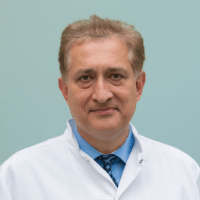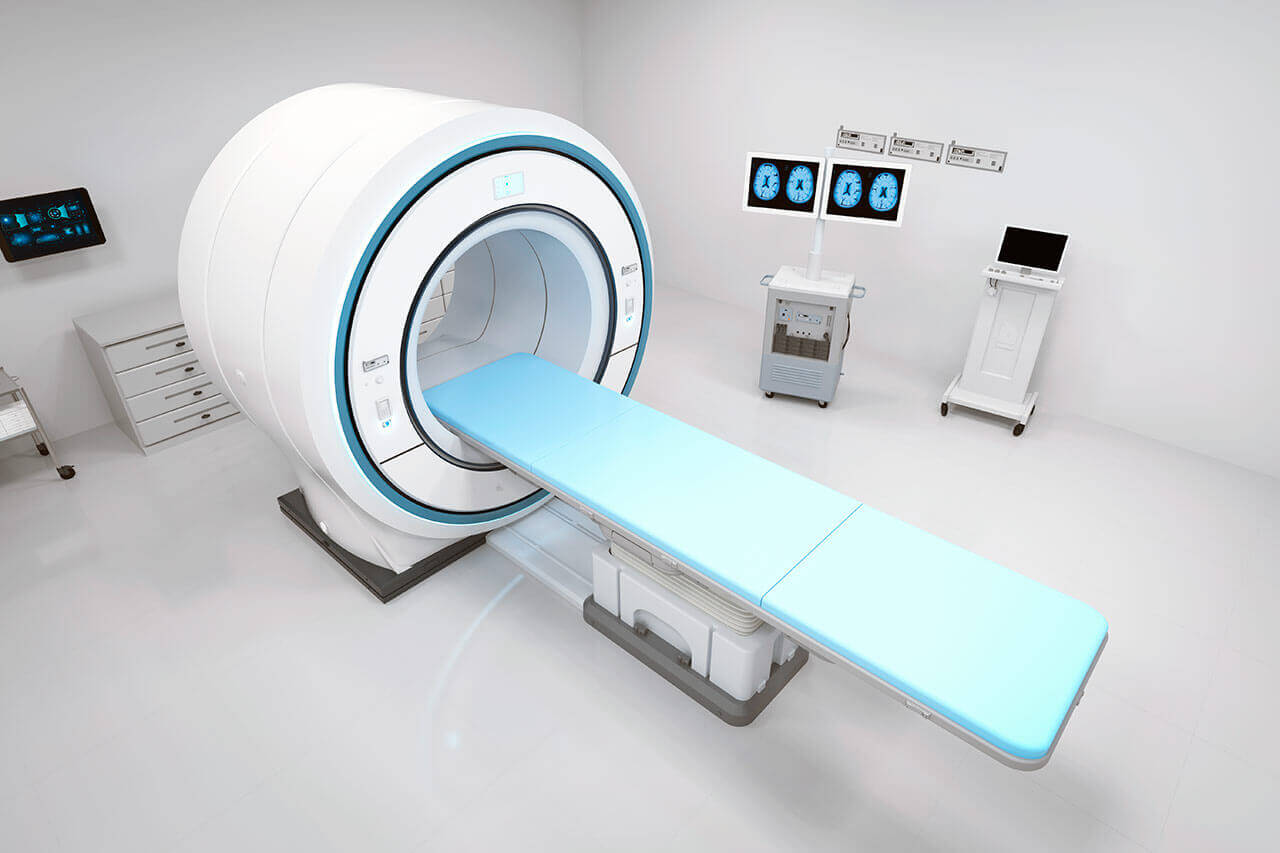
About the Department of Neurology at International Neuroscience Institute Hannover
The Department of Neurology at the International Neuroscience Institute Hannover offers the full range of diagnostic examinations and conservative treatments for the patients suffering from diseases of the nervous system. The department mostly deals with the treatment of patients with movement disorders (for example, Parkinson's disease, tremor), multiple sclerosis, neuromuscular diseases, dystonia, chronic back pain, chronic headache, polyneuropathies, amyotrophic lateral sclerosis, infectious diseases of the nervous system, stroke, etc. Thanks to long clinical experience of doctors and high-tech equipment of the department, the patients can be sure to benefit from the accurate diagnostics, which determines the success of follow-up therapeutic measures. Neurologists cooperate closely with neurosurgeons and neuroradiologists, therefore, if a neurosurgical intervention or image-guided interventional procedure is required, the patient receives medical care from highly qualified specialists. The work of the department's medical team is based on an individual approach to each clinical case, due to which it achieves high treatment success rates. The Chief Physician of the department is Prof. Dr. med. Bahram Mohammadi.
When admitted to the department, the patient has an initial consultation with his attending physician who studies the patient's medical history, asks questions about complaints and symptoms. Based on the results of the consultation, the specialist elaborates a plan for further diagnostic examination to assess the neurological status and develop an effective treatment regimen. Depending on the presumptive diagnosis, the examination may include laboratory tests, lumbar puncture, functional tests, ultrasound examinations, radiography, angiography, computed tomography, magnetic resonance imaging, electroencephalography, electronystagmography, recording of evoked potentials and other diagnostic procedures. After receiving the results of the comprehensive diagnostic examination, the attending physician establishes a diagnosis and prescribes the required treatment for the patient.
The department's specialists quite often manage to cope with a neurological disorder using only drug therapy. The patients admitted to the department with a stroke usually receive thrombolytic therapy to dissolve blood clots in the cerebral vessels. In especially complex cases, mechanical recanalization with the use of endovascular devices can become an option of choice. The department's specialists have exceptional qualifications in the treatment of Parkinson's disease and amyotrophic lateral sclerosis. To fight against these pathologies, neurologists use comprehensive treatment aimed at alleviating the symptoms and preventing the progression of the pathology. The treatment is based on the intake of an individually selected set of drugs, which can be supplemented with transcranial magnetic stimulation, physiotherapy and manual therapy.
Of particular interest is the treatment of multiple sclerosis, which is a common and severe neurological disorder. The main diagnostic tests for detecting multiple sclerosis are magnetic resonance imaging and lumbar puncture. Should the diagnosis be confirmed, the doctors will determine the clinical form of multiple sclerosis by assessing the frequency of exacerbations, the number of pathological foci and clinical signs. Multiple sclerosis is an incurable disease, and therefore pharmacotherapy and physiotherapy are aimed at eliminating symptoms, improving the patient's health and improving his quality of life.
The department also successfully treats chronic back pain. The first-line therapy is the use of painkillers and a specially selected course of physiotherapy. If such an approach does not allow the specialists to achieve the desired result, neurologists resort to injection therapy (block). Such treatment involves the use of local anesthetics (for example, lidocaine, novocaine), steroid drugs (for example, diprospan, kenalog) and others. The attending physician selects the most effective drug individually, taking into account the patient's age, the causes of the development of pain, the nature, intensity and duration of pain.
The department specializes in the diagnostics and treatment of the following neurological disorders:
- Stroke
- Epilepsy
- Chronic back pain
- Migraines and chronic headache
- Dystonia
- Polyneuropathies
- Neuralgia
- Myasthenia gravis
- Peripheral nerve compression syndromes
- Amyotrophic lateral sclerosis
- Parkinson's disease
- Alzheimer's disease
- Dementia
- Degenerative spinal diseases (for example, herniated discs, spinal stenosis, spinal instability, etc.)
- Spasticity
- Other diseases
The department's range of diagnostic and therapeutic services includes:
- Diagnostics
- Laboratory tests
- Lumbar puncture
- Functional tests
- Ultrasound scanning
- X-ray scanning
- Angiography
- Computed tomography
- Magnetic resonance imaging
- Electroencephalography
- Electronystagmography
- Recording of evoked potentials
- Therapy
- Drug therapy
- Thrombolytic therapy and mechanical recanalization for stroke
- Transcranial magnetic stimulation
- Botulinum toxin therapy
- Injection therapy for chronic back pain
- Physiotherapy
- Manual therapy
- Other medical services
Curriculum vitae
Prof. Dr. med. Bahram Mohammadi heads the Department of Neurology at the International Neuroscience Institute Hannover. The specialist received his medical education at the Hanover Medical School. In 2000, he received his doctorate. From 1999 to 2005, he underwent specialized training in Neurology in the Department of Neurology at the Hanover Medical School. In 2005, he had his board certification in Neurology, as well as specialization in Electrophysiology of Neurodegeneration in the Department of Neurology at the Hannover Medical School. From 2006 to 2010, Prof. Bahram Mohammadi worked as Senior Physician at the International Institute of Neurology Hannover, after which in 2010 he moved to the Department of Neurology at the University Medical Center Schleswig-Holstein, Lübeck. From 2006 to 2010, he was Fellow at the German Research Foundation (DFG) in Clinical Neurobiology. During this time, he co-founded a new Research Group on Functional Imaging in Neurology, Psychiatry and Psychology at the International Neuroscience Institute Hannover. Since 2011, Prof. Mohammadi has been heading the Department of Neurology at the International Neuroscience Institute Hannover. In 2011, he also received Extraordinary Professorship.
Clinical and Research Interests
- Treatment of motor neuron diseases (for example, amyotrophic lateral sclerosis).
- Treatment of movement disorders (for example, Parkinson's disease, dystonia).
- Botulinum toxin injection therapy (for example, for dystonia, hyperhidrosis, spasticity, chronic migraine).
- Functional imaging diagnostics.
- Clinical neurophysiology (electromyography, electroneuromyography, recording of evoked potentials).
Certificates
- Certificate in Botulinum Toxin Therapy by the Working Group on Botulinum Toxin Therapy of the German Society of Neurology (DGN).
- Certificate in Registration of Evoked Potentials of the German Society for Clinical Neurophysiology and Functional Imaging (DGKN).
- Certificate in Electromyography and Electroneurography of the German Society for Clinical Neurophysiology and Functional Imaging (DGKN).
- Certificate in Electroencephalography of the German Society for Clinical Neurophysiology and Functional Imaging (DGKN).
Memberships in Professional Societies
- German Society of Neurology (DGN).
- German Society for Clinical Neurophysiology and Functional Imaging (DGKN).
- Working Group on Botulinum Toxin Therapy of the German Society of Neurology (DGN).
- Organization for Human Brain Mapping (OHBM).
Photo of the doctor: (c) International Neuroscience Institute®




